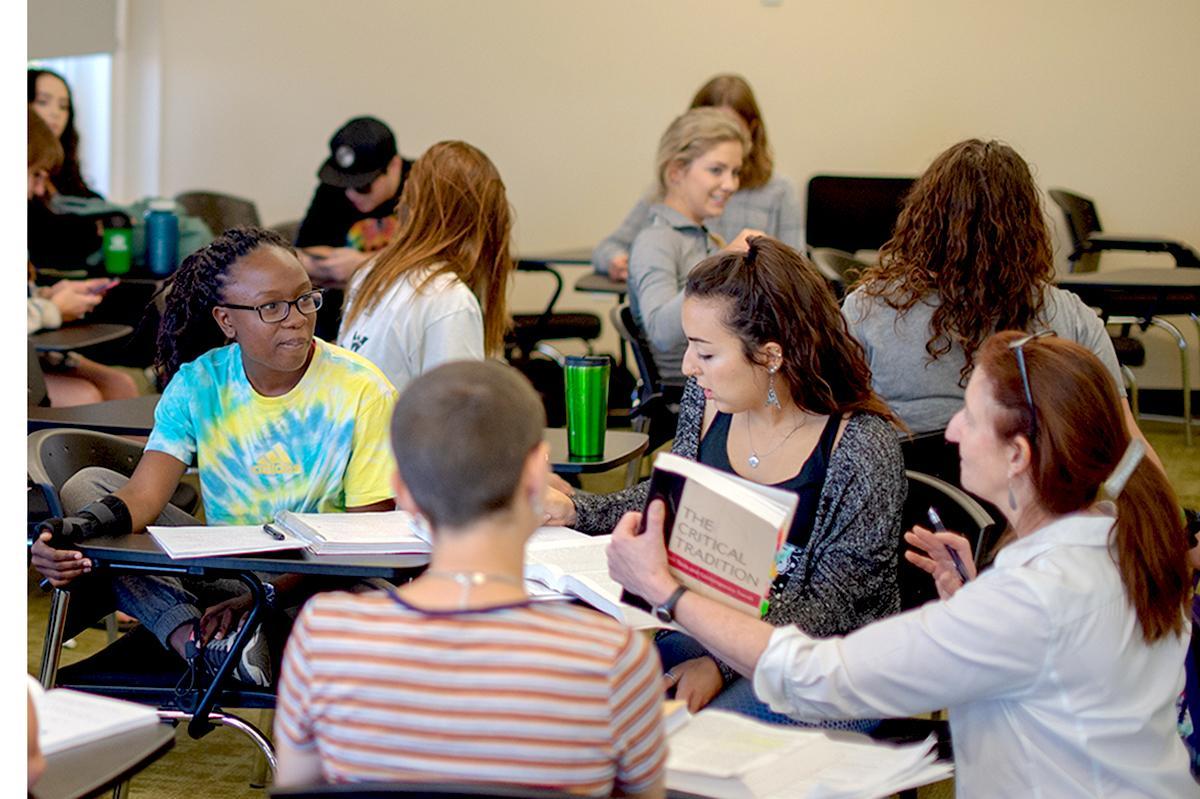In an ever-changing world in which technology, microchips and algorithms dominate our culture, the need for human touch may be more important than ever. The ability to connect with others is becoming a lost art, as empathy, understanding and conflict resolution sometimes take a backseat to the efficiency of computing.
Inclusion of the human touch
To address this, Western has developed a course of study that brings the human experience back into the classroom and workforce in a way that fosters diversity and inclusion. The Humanities and Diversity minor—now in its second year—gives students the opportunity to explore areas of philosophy, communication arts, women’s studies, literature of other cultures and ethnicity with the aim of developing different perspectives.
The minor is offered to not just fulfill a trend of the times but rather to equip a future workforce with skills they need to succeed in the career of their choice. Research shows that diversity leads to workplace innovation, enhanced decision making and performance, and a better bottom line.
“Communication skills are so crucial to getting feedback and running a good business,” said Western English professor Alina Luna, who helped launch the program. “We want people to care and feel like what they do matters and that they are being heard. One of the ways you can lose employees fast is by being utterly dismissive of them or not thinking that they care about their work—that they don’t take pride and dignity in what they do.”
Lessons from Businesses
Luna said that one way businesses can make poor decisions is if they rely on the opinions of a homogenous group. She noted one company that launched a national campaign featuring a diverse group of women to represent its product; but in the sequence of the commercial, Caucasian women were highlighted as a finished product rather than ones of ethnic background. The campaign drew more criticism than praise.
“It’s millions of dollars and lots of apologies. And then you lose credibility,” Luna said. “And it starts a complicated backlash when diverse input could have saved so much time and effort.”
Luna offered that if the group of decision makers had been more diverse, perhaps the oversight would have been caught.
Gaining a Better Understanding
The Humanities and Diversity minor offers courses from the following disciplines: English, communication arts, philosophy and Spanish. Through the study of literature and related disciplines, student gain a better understanding of diversity, identity and lived realities.
“There are moments of difficult conversations,” Luna said. “For any student who wants to take it … my only requirement is that you come to the classroom in good faith … not show up to bait people into pointless conversations … or attack someone. Be willing to listen, not take it personally, be open and be critical.”
Sophomore Cory Ragsdale is one course away from obtaining her minor. As an English major who hopes to one day be an educator, Ragsdale feels the minor complements her chosen career path perfectly.
“As an educator I believe it is extremely important to understand diversity among the humanities,” Ragsdale said. “I will be working with students from different cultural, racial, ethnic, national, gender and religious backgrounds, so I felt that educating myself on such topics would only further prepare me for my career.”
Preparing for the Workforce
In one course, Ragsdale said she learned about minority experiences. What she learned, she said, will ensure she does not unconsciously perpetuate discriminatory behavior, such as systematic racism, biases and internalized misogyny.
“I hope to apply this when teaching to ensure that all of my students, feel safe, protected, represented and included,” Ragsdale said.
This spring, the first graduates with the humanities and diversity minor will enter the workforce. While there is not yet a track record for Western graduates with this minor, studies show that such instruction makes employment candidates more desirable than the broader pool of applicants.
Additionally, managers and executives with diversity and inclusion backgrounds report more career satisfaction and commitment.
“This is a minor that’s going to draw a certain student,” Luna said. “They’re the ones who want to know how they can change things and make a difference in the world.”
Author Credit: Chris Rourke
Photo Credit: Randall Gee


